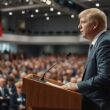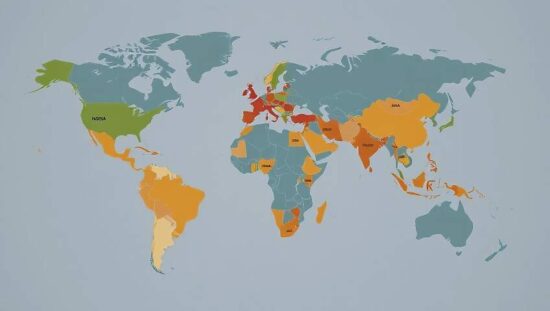The current US customs policy is a major concern for corporate chiefs around the world, according to a recent CEO survey by EY Parthenon, the strategy and transaction advisory of EY, as reported in “Welt” (Saturday edition).
42% of the 1,200 managers surveyed in April identified geo- and trade policy uncertainty as the main risk for their company. Topics such as the climate crisis and the resulting new environmental laws, as well as labor and skills shortages or technology and cyber security threats, received significantly lower ratings. The first reaction to the danger of a global trade war is hesitation.
“The uncertainty is enormous and leads companies worldwide to reconsider their investment plans” said Sandra Krusch, partner at EY-Parthenon in Germany. “This means concretely: Companies are in a holding pattern and postpone major investment decisions.” Thus, the volatile and unpredictable US customs policy has become the biggest global economic risk.
In particular, German companies are hitting the brakes: 85% of CEOs here report that they have recently changed their investment plans due to trade policy developments. Two-thirds report a shift in investments.
Moreover, four in ten companies have even completely stopped at least one project. This is as many as in no other of the 21 participating industrial countries. For comparison: The corresponding share in China is only 23%, in Canada 14% and the global average is 22%.
“The German corporate landscape is characterized by its high degree of internationalization” explained Krusch. “Disturbed supply chains, high extra costs, price increases in buying and selling, high liquidity burdens and an enormously increasing administrative burden: This is the problem for globalized German companies.





